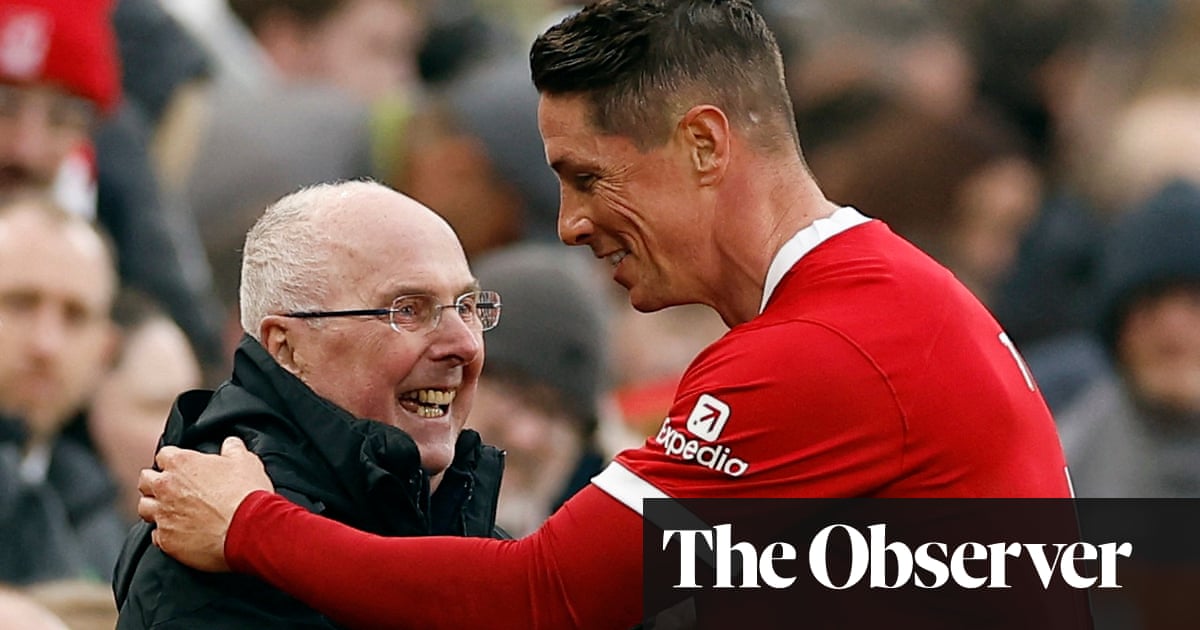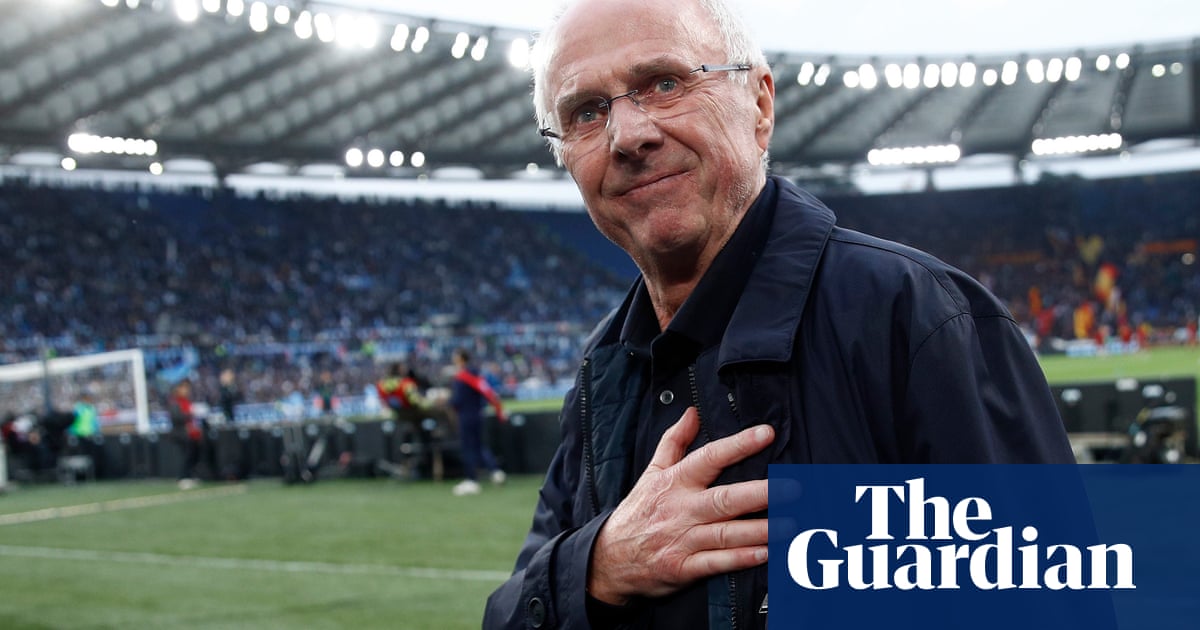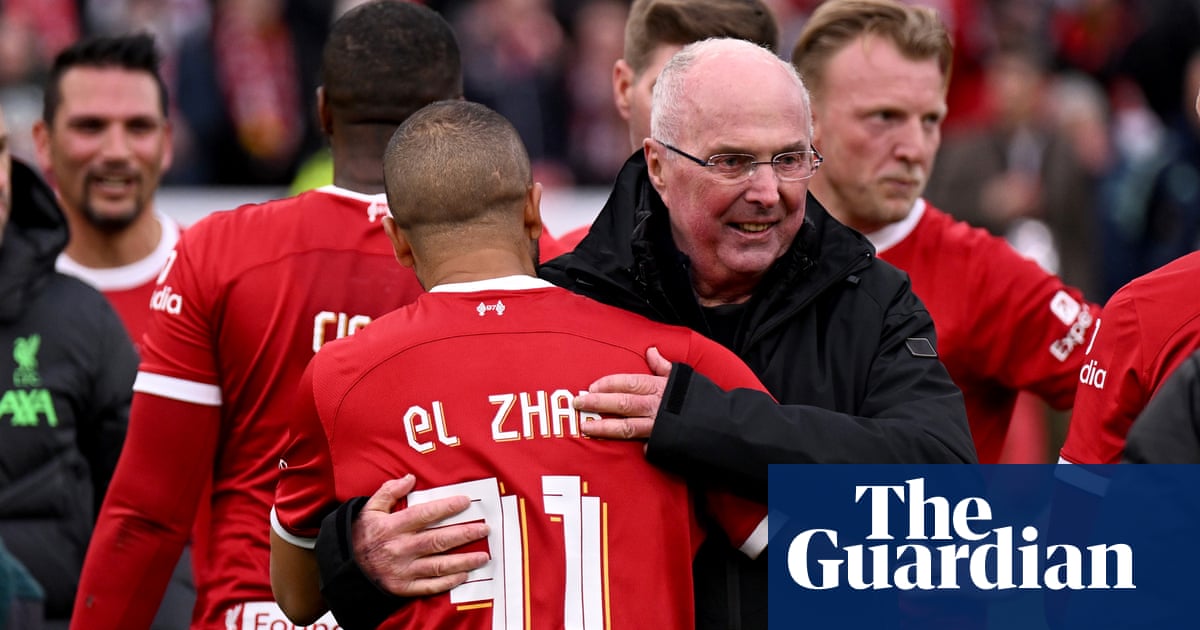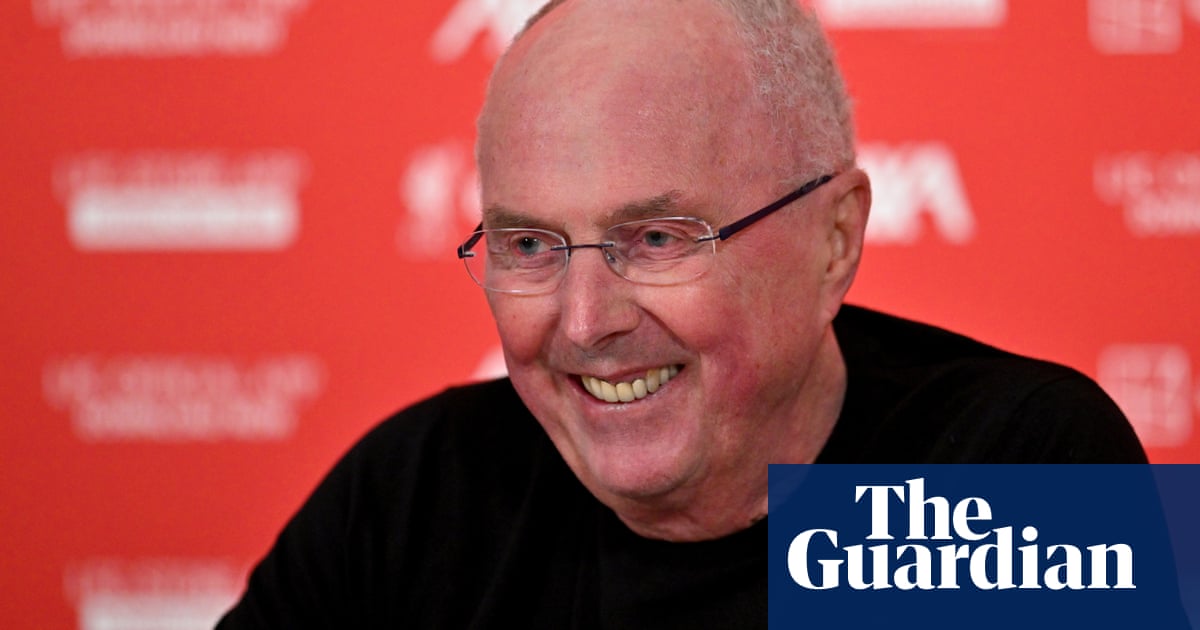
Sven-Göran Eriksson and I had arranged to meet in Sweden. He was back living where he grew up in rural Sunne, in Värmland, in touch with nature and family in a way he’d not been since childhood. The dates kept being cancelled because he wasn’t strong enough, so eventually we Zoomed earlier this month.
After spending more than an hour with him, I was convinced he was going to be with us for a while yet. He seemed so strong and determined to push through for as long as possible, despite the diagnosis in January that he had a year at most left to live.
Like so many people facing terminal illness, his focus had changed. The closer he got to death, the more time he had for the tiny things in life that didn’t seem so important when he was a globe-trotting football manager. Now it was all about forest walks, lakeside views and coffee with old friends. And, of course, he still had time for football. The day before we spoke, he had watched five Olympics football matches on TV in a day. That was one of the many ways he was misunderstood. People thought Sven was in it for the money, but he was useless with his finances while he was obsessed with the beautiful game.
I was left with the sense of a deeply moral man. Not in a churchy or puritanical manner, but in the sense that he was true to himself. He never understood the tabloid fascination with his private life. As he told me, he wasn’t married, and nobody else understood the on-off nature of his relationship with Nancy Dell’Olio – so who was the British media to judge him from on high?
Phone-tapping had led to relationships being exposed in the red tops, and a sting by the News of the World led to him losing the England job when he said he was prepared to manage Aston Villa after the 2006 World Cup. Again, he was being true to his own code – he knew that the FA would probably dump him after the World Cup so why wouldn’t he consider his options?
He wasn’t bitter about the way the British press had treated him, nor was he forgiving. He was realistic. Sven was funny, in a quiet, po-faced way. I asked him what he felt like when the News of the World was forced to shut, and he said it was like a birthday. As he was realistic about the media’s failings, so he was about his own. He lost all his money in dodgy investments, he told me, because he was “stupid”.
The press had broken the law to expose him, but when it had come to some of his flings he said he’d also been a bit stupid. And, yes, when he found himself in North Korea with short-lived new owners of Notts County being asked if he could fix the country’s World Cup draw, he’d been stupid again.
Sven was such a unique mix. So very different from the very English England managers who had come before him. On one hand, he was urbane, professorial and unflappable. On the other he could have been a cartoon character (you’d possibly draw him as a debonaire dog on heat) with an uncanny knack for sniffing out mishaps.
But what has emerged since he announced his terminal cancer was how much he loved football and how much football loved him. In his final few months, he went about completing his bucket list – one of which was managing Liverpool, which he did in a friendly match this summer. He visited many of the old clubs he had brought huge success to and was greeted with adoration.
He felt the love from fans and players alike. David Beckham recently visited him with litres of wine from dates that were important to him. Typical of Sven that he never mentioned this to me, he simply said Beckham kept in touch. Even the tabloids that pried on every indiscretion have had nothing but praise for Sven in his dying days.
And that’s the thing. Even when they were bent on destroying him, the redtops loved him – partly because he sold more newspapers than the actual players, partly because he was such an improbable Casanova, and partly because they realised he was a decent man.
For all his self-professed stupidity, there was a nobility to Sven. Never more so than in his final press conference as England manager just after going out of the quarter-final of the World Cup to Portugal. He pleaded with the media to look after Wayne Rooney, despite his sending off against Portugal that probably cost England a semi-final place. “You, much more than me, need Wayne Rooney in the next few years so, please, pay attention, don’t kill him, I beg you.” That’s why the players loved him. He protected them as much as he nurtured them.
I asked him if, ultimately, the tabloids did kill him. “Sort of – they did, yes.” Maybe. Now both the News of the World and Sven have gone – the former’s reputation was in tatters; the latter’s is intact, if not enhanced. Many more of us will grieve for this great, unlikely football manager than ever did for the discredited rag that set out to destroy him.












